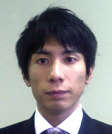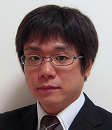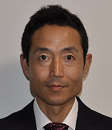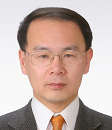「Typing Tutor: Individualized Tutoring in Text Entry for Older Adults Based on Statistical Input Stumble Detection」
Typing Tutor: Individualized Tutoring in Text Entry for Older Adults Based on Statistical Input Stumble Detection
[Journal of Information Processing Vol.26, pp.362-374]
[Abstract]
Many older adults are interested in smartphones.
However, most of them encounter difficulties in self-instruction and need support.
Text entry, which is essential for various applications, is one of the most difficult operations to master.
In this paper, the authors have proposed Typing Tutor, an individualized tutoring system for text entry that detects input stumbles using a statistical approach and provides instructions.
By conducting two user studies, the authors have clarified the common difficulties that novice older adults experience and how skill level is related to input stumbles with a 12-key layout for Japanese.
Based on the study, the authors have developed Typing Tutor to support learning how to enter text on a smartphone.
A two-week evaluation experiment with novice older adults (65+) shows that
Typing Tutor is effective in improving their text entry proficiency, especially in the initial stage of use.
In addition, the authors have demonstrated the applicability of Typing Tutor to other keyboards and languages
with the QWERTY layout for Japanese and English.
[Recommendation]
The authors propose Typing Tutor, an interactive tutoring system that is designed to reduce difficulties for older adults who are smartphone novices to enter texts, by input stumble detections and tailored provision of instructions. They develop innovative techniques for automatic classifications of input stumbles and user levels, and incorporate these techniques into Typing Tutor to present voice and text instructions and to highlight software keys. Based upon a two-week user testing experiment, they present convincing evaluation results. It is highly expected that this excellent paper will contribute to mitigate the digital divide in a super aged society. Thus, we nominate it for the Journal of Information Processing Outstanding Paper Award.

Toshiyuki Hagiya
He received his Bachelor's, Master's, and Ph.D. degrees from Kyoto University in 2008, 2010, and 2018. He joined KDDI Corporation in 2010. He engaged in research and development of spoken dialogue systems and interactive user interface at KDDI Research, Inc. He is currently an assistant manager of KDDI Corporation. He is a member of IPSJ, ACM.

Toshiharu Horiuchi
He received his Bachelor's, Master's, and Ph.D. degrees from Nagaoka University of Technology in 1999, 2001, and 2004. From 2002 to 2006, he was a researcher at Advanced Telecommunications Research Institute International (ATR). From 2006 to 2009, he was a research engineer at KDDI R&D Laboratories, Inc. Since 2009, having joined the KDDI Corporation, he has worked as a R&D manager at KDDI Research, Inc. His research interests include perceptual information processing, human interface and interaction, and control and systems engineering. He is a member of ASJ, IEEE, and IEICE.

Tomonori Yazaki
He is a senior manager in Future Design Division at KDDI Research, Inc. He has been engaged in the research and development of Human Computer Interaction system/application. He received his B.E. and M.E. from The University of Electro-Communications in 1996 and 1998, and received his Ph.D. from Chiba Institute of Technology in 2017, respectively. He is a member of IEICE, JSKE and J-mac.

Tatsuya Kawahara
He is a Professor in the School of Informatics, Kyoto University. He has published more than 300 technical papers on speech recognition, spoken language processing, and spoken dialogue systems. He was a General Chair of IEEE-ASRU 2007 and a Local Arrangement Chair of ICASSP 2012. He has been an editorial board member of Elsevier Journal of Computer Speech and Language and IEEE/ACM Transactions on Audio, Speech, and Language Processing. He is an editor in chief of APSIPA Transactions on Signal and Information Processing. Dr. Kawahara is a board member of APSIPA and ISCA, and a Fellow of IEEE.





